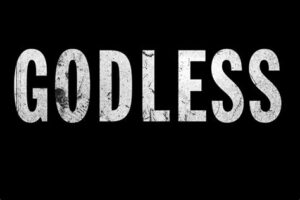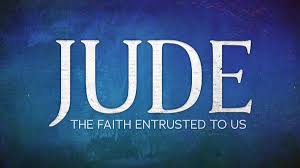Ap – These People Speak Abusively Jude 10 and Second Peter 2:12
These People Speak Abusively
Against Whatever They Do Not Understand
Jude 10 and Second Peter 2:1
These people speak abusively against whatever they do not understand DIG: What two things does Jude say about the apostate teachers? What are the two different uses for the Greek words for understand in Jude 10. To whom is this message written about? Righteous believers? Backslidden believers? The intellectually convinced? What actually destroys them in the end? How does Jude destroy their claim to superior knowledge? What does “progressive” thinking lead to?
REFLECT: How can you spot a wolf in sheep’s clothing where you worship? What are the clues? How were you saved from the foolishness of this world?

Yet these people speak abusively against whatever they do not understand. And what they do understand naturally, without thinking, like animals – by these things they are brought to ruin (Jude 10 NIV and CJB).
But these people blaspheme in matters they do not understand. They are like brute beasts, creatures of instinct, born only to be caught and destroyed, and like beasts they too will perish (Second Peter 2:12).
Whereas Michael did not dare accuse the devil, these apostates, by contrast, spoke abusively against God’s holy angels (Jude 8). They are totally without any kind of spiritual understanding. Things of the Spirit are beyond their natural intelligence. So when spiritual matters are brought to their attention, they treat it with scorn and mocking. Jude says two things about the apostate teachers.
First, they criticize everything that they don’t understand. Yet these people speak abusively, blasphemeo, against whatever they do not understand in a worldly way (Jude 10a and Second Peter 2:12a). With the word these at the beginning of verse 10, Jude returns to his characterization of the false teachers. He uses two different Greek words for understand in verse 10. The first is oida meaning mental comprehension and knowledge. Anything out of their experience they disregard as worthless and irrelevant (First Corinthians 2:14). Having no spiritual discernment, they are blind to, and contemptuous of, all spiritual realities. All this points to the fact that they are not believers who went astray. Jude is writing about people who never were believers to begin with. They simply began associating with the messianic synagogue in their area and pretended to be believers for satisfying their sexual appetite’s and spreading their own false teaching.63

We must not forget that Jude 10 is not written primarily about atheists, who despise our faith in total blindness to the truth: So if indeed our Good News is veiled, it is veiled only to those in the process of being lost. They do not come to trust because the god of [this age] has blinded their minds, in order to prevent them from seeing the light shining from the Good News about the glory of the Messiah, who is the image of God (Second Corinthians 4:3-4 CJB). Neither is it written about the righteous of the TaNaKh, but rather about the intellectually convinced (Hebrews 3:7-19). Those unbelievers who once had knowledge of the truth, but did not cross the line from knowledge to faith, and afterward fell away. It is not surprising that an atheist or an apostate would speak abusively against the Lord’s people. In reality, they are wolves in sheep’s clothing, and this is why Jude wrote his letter – to warn us of their coming.
Second, they allow themselves to be corrupted by the things they do understand. And what they do understand naturally by instinct, without thinking, are the sensual instincts that they share with the animals (Jude 10b CJB). The second interpretation of the Greek word for understand in verse 10 is epistamai, meaning sensual enjoyment. Even though they may be looked upon as having a form of godliness, their animal nature dominates them. They love the world – the lust of the flesh, the lust of the eyes, and the pride of life (First John 1:16).
They are like brute beasts, creatures of instinct, and like unreasoning animals they are born only to be caught and destroyed (Jude 10b NIV and Second Peter 2:12b). Here Jude refers to the false teachers as unreasoning beasts. They could not speak reasonably because they cannot reason. No matter how educated the apostates are, no matter how profoundly philosophical they think their teaching is, or how many mystical visions and insights they claim to have had, they still are like brute beasts. Like the rest of sinful humanity: Although they claimed to be wise, they became fools (Romans 1:22; First Corinthians 3:18; Second Corinthians 10:5 and 12; Galatians 6:3; Ephesians 4:17; Second Timothy 3:2 and 4).64
Rather than comprehending the angels above, they really only understood the animals below. Therefore, Jude demolished their Gnostic claim to superior knowledge (to see link click Ac – The Book of Jude from a Jewish Perspective: Purpose). And their understanding – polluting their own bodies in Jude 8 – was, like the sin of Sodom and Gomorrah in Jude 7. They became self-destructive. They have become filled with every kind of wickedness, evil, greed and depravity. They are full of envy, murder, strife, deceit and malice. They are gossips, slanderers, God-haters, insolent, arrogant and boastful; they invent ways of doing evil (Romans 1:29-30a). In the end they are destroyed by their own lying and deceiving heresies, which will bring upon them the judgment of ADONAI (Genesis 6:17, 19:24; Second Kings 22:17; Jeremiah 30:16; Matthew 7:22-23, 13:40-42, 25:41; Hebrews 10:27).
Ironically, by these things they are brought to ruin, and like brute beasts without reason they too will perish (Jude 10c and Second Peter 2:12c). They may possess a degree of animal perception, but even that perception will end up destroying them. With the three warnings of Jude 5, 6 and 7 before them, his readers are urged to beware of the spiritual corruption of the apostates. It reached every aspect of their personalities. Physically, they became immoral. Intellectually, they became arrogant. And spiritually, they denied Adonai.
“Progressive” morality and “progressive” thinking too often lead to progressive deafness and blindness to the voice of God. It is a terrible thing for people to reach a stage where they are deaf to the LORD and blind to goodness. And that is exactly where the people whom Jude attacks have reached. For the Message of the cross is foolishness to those who are perishing, but to us who are being saved it is the power of God. For it is written, “I will destroy the wisdom of the wise; the intelligence of the intelligent I will frustrate (First Corinthians 1:18-31).
Without exception, the wisdom of the world elevates itself and lowers ADONAI. In its own wisdom the world inevitably exchanges the truth of God for a lie and worships created things rather than the creator (Romans 1:25). Human wisdom cannot understand the Message of the cross. With all their supposed wisdom, mankind has never been able to know Adonai, much less have a personal relationship with Him. God chose to use that which the world views as foolishness, to save those in the world who would simply believe (pisteo, to believe, to have faith in, to trust in). For those who will exchange their wisdom for His, YHVH offers transformation, regeneration, new birth and a new life through the power of the cross of Jesus Christ, His Son. This foolishness is our only hope.65

















